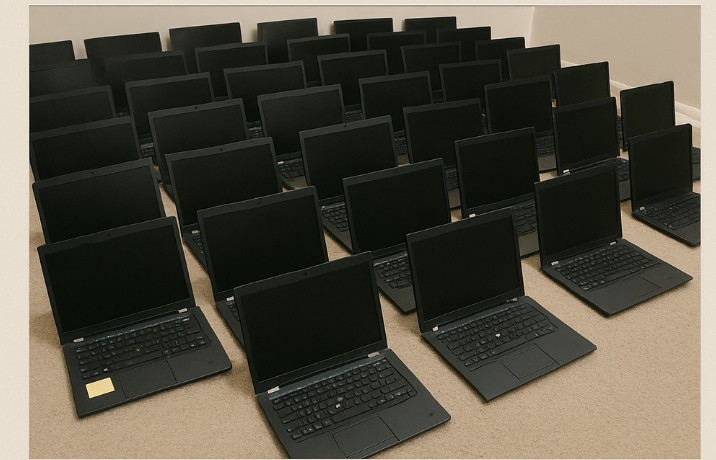The case of Christina Marie Chapman from Arizona has caused an international sensation. She was convicted in 2025 of conspiracy to commit wire fraud, aggravated identity theft and money laundering. The court handed down a prison sentence of more than eight years, plus several years’ probation and six-figure fines and forfeitures. The core of the allegations: Chapman was a crucial link in a large-scale fraud scheme that enabled North Korean IT specialists to obtain millions from the USA via remote work.
Investigators found more than 90 laptops in her apartment, each with company stickers and notices. These devices served as an interface for North Korean IT workers who were employed by American companies under false identities. With this so-called laptop farm, Chapman was able to give the impression to the outside world that the contractors were actually in the USA. This enabled him to deceive over 300 companies from sectors such as technology, aviation, media, automotive and luxury retail.
The salaries and payments defrauded in this way amounted to more than 17 million dollars. A significant portion of this money was forwarded to the North Korean regime, which used the funds to finance its missile and weapons program, among other things. The fraud was therefore not only an economic offense, but also had security policy relevance.
By her own account, Christina Chapman was under considerable pressure. She was caring for her mother, who had cancer, and was living in precarious financial circumstances. Nevertheless, news reports show that she was aware of the consequences of her actions. She herself wrote in chats that she would face a long prison sentence if her actions were discovered. She later explained in a letter to the court that she was almost relieved when the FBI arrested her, as she herself saw no way of escaping from the dependency of those behind her.
The case is seen as an example of the new dangers in a working world in which remote working has become the norm. For companies, this means that they have to check applications and employment relationships more closely. Background checks, personal agreements when issuing hardware and stricter identity verification procedures could make similar cases of fraud more difficult. At the same time, it is clear that states such as North Korea are systematically looking for ways to raise capital for their political and military programs through cybercrime and covert labor models.
Conclusion
The story of Christina Marie Chapman shows how vulnerable modern working structures are when there is a lack of control and scrutiny. With an inconspicuous laptop farm in an apartment, she was able to create the breeding ground for a multi-million dollar flow of money to North Korea. For the USA, the case is a warning that economic negligence can have direct security policy consequences. For companies worldwide, it is a wake-up call to monitor digital working relationships more carefully in order to avoid inadvertently becoming part of international fraud schemes.
Source: t3n.de

